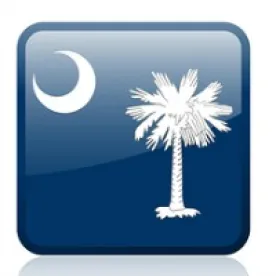Effective July 1, 2022, college athletes in South Carolina can earn compensation for the use of their name, image, or likeness (NIL) and to obtain agents.
Senate Bill 685, signed by Governor Henry McMaster, applies to eligible intercollegiate athletes and post-secondary educational institutions in South Carolina. It prohibits such institutions from adopting or maintaining contracts, rules, regulations, or standards that prevent or unduly restrict an athlete from (1) earning NIL compensation, or (2) obtaining an agent for the purpose of securing NIL compensation. Institutions and athletic conferences are also prohibited from directly or indirectly creating or facilitating NIL compensation opportunities for athletes.
Although the law opens the door to NIL compensation, it also provides limits. College athletes in South Carolina will be able to receive NIL compensation only from third parties for endorsements, non-athletic work product, and activities related to a business that the athlete owns. College athletes in South Carolina may not earn NIL compensation for any of the following:
-
The athlete’s athletic participation or performance, or recruiting inducements by a higher education institution or its boosters;
-
Endorsement of tobacco, alcohol, illegal substances or activities, banned athletic substances, gambling, or sports betting;
-
Activities that use the institution’s facilities, uniforms, or intellectual property in connection with the use of the athlete’s NIL;
-
Activities that occur during participation in academic, athletic, or team-mandated activities; and
-
Activities that conflict with existing institutional sponsorship agreements or other contracts or that conflict with defined institutional values, if the institution elects to prohibit NIL compensation on these grounds.
Further, to earn NIL compensation under the law, an athlete is required to (1) abide by their institution’s and athletic department’s policies with respect to missed class time and good academic standing, (2) meet all academic requirements of the athletic association and conference to which the institution is a member, (3) disclose existing NIL contracts to the institution and its athletic department prior to enrollment or signing a financial aid agreement or team contract, and (4) disclose the terms of proposed NIL contracts to the institution prior to signing the contracts, in a manner designated by the institution. Higher education institutions must disclose prohibitions for the use of NIL to college athletes at the time the athlete is admitted or signs a financial aid agreement or team contract.
A grant in aid, including the cost of attendance, awarded to an athlete is not considered NIL compensation under this law and may not be reduced or revoked because the athlete receives NIL compensation or agent representation. Although NIL compensation cannot be used to limit athletic grant in aid, it may be used in the calculation for need-based financial aid available to the general student population at an institution.
Anticipating the need for additional oversight, the South Carolina law allows higher education institutions to fund an independent, third-party administrator under their athletic departments who supports education, monitoring, disclosures, and reporting of permitted NIL activities.
At least 20 other states have enacted similar NIL legislation, though the details vary from state to state. In several of those states, including Alabama, Florida, Kentucky, Georgia, Texas, Ohio and Mississippi, college athletes will be able to earn NIL compensation beginning on July 1, 2021, a full year ahead of their peers in South Carolina.





 />i
/>i

